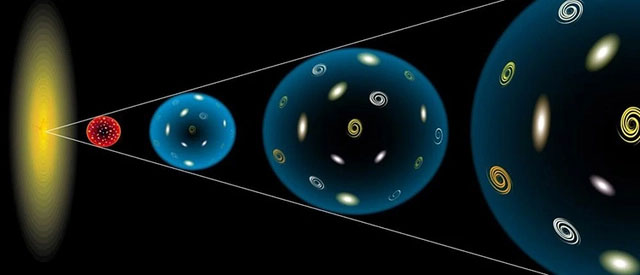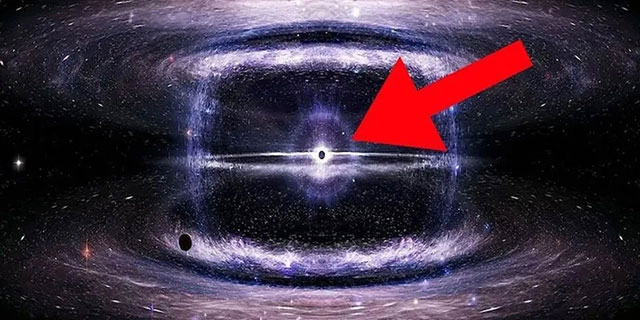After nearly 13.8 billion years of constant expansion, the universe is about to contract?
Since then, the Big Bang theory has been widely accepted as an explanation for the beginning of the entire universe. According to the Big Bang theory, the universe arose from a small, hot state that contained dense amounts of matter. Everything was released only after there was a big explosion.
The common explanation is that space is expanding on its own after the Big Bang, causing galaxies to recede from each other, like points on an inflated balloon. Since the beginning, the universe has been expanding at a remarkable rate.
However, after nearly 13.8 billion years, the universe is now gradually entering the process of "recession" when there are signs of stalemate and will soon shrink in the next 65 million years.

Describe the expansion of the universe.
Scientists have used previous observations of the expansion of the universe to try to model dark energy, a mysterious force that makes up about 70 percent of the universe. The repulsion of this type of energy causes the universe to expand faster than ever before, but experts say its influence is now showing signs of waning.
According to the computational model, the acceleration of the universe could quickly end within the next 65 million years. Then, within 100 million years, the universe might stop expanding completely and start contracting.
Dark energy is a mysterious invisible entity that many researchers believe works in opposition to gravity by pushing the universe's heaviest objects apart instead of pulling them together.
That means when dark energy weakens, gravity will be a stronger governing force to the universe, leading to stars, galaxies and planets being pulled together, leading to collisions. According to this line of reasoning, the universe will face a prospect of self-destruction

Dark energy is showing signs of weakening.
Experts say the shrinking of the universe will be so slow that if humans were still alive on Earth at that time, they wouldn't even notice the change. But in fact, in a few billion years, the universe will reach half the size of today.
The researchers believe that the universe's cycle of expansion will create an iterative process of destruction and rebirth. The universe will shrink until it collapses on its own before another Big Bang, giving birth to a new universe.
This is one of a number of controversial theories about the end of the universe besides the Big Rip theory, when galaxies are torn apart, or the Big Freeze theory, which suggests that matter will clump together but decay into radiation. radiation as the universe expands.
- How big is the universe?
- The universe may be 'younger' than 2 billion years old
- Cosmic expansion: Einstein's black energy and cosmological constant
- HP signed a $ 5.6 billion contract with NASA
- Identify the universe
- Research shows that we all misunderstood the universe
- Where is the center of the universe?
- The 3D universe map contains 1.2 million galaxies that prove the universe expanded rapidly
- The universe is expanding at dizzying speed
- The truth is that the universe is expanding itself but expanding in what?
- The universe will gradually disappear?
- Modifications of supernova type 1a
 Van Allen's belt and evidence that the Apollo 11 mission to the Moon was myth
Van Allen's belt and evidence that the Apollo 11 mission to the Moon was myth The levels of civilization in the universe (Kardashev scale)
The levels of civilization in the universe (Kardashev scale) Today Mars, the sun and the Earth are aligned
Today Mars, the sun and the Earth are aligned The Amazon owner announced a secret plan to build a space base for thousands of people
The Amazon owner announced a secret plan to build a space base for thousands of people